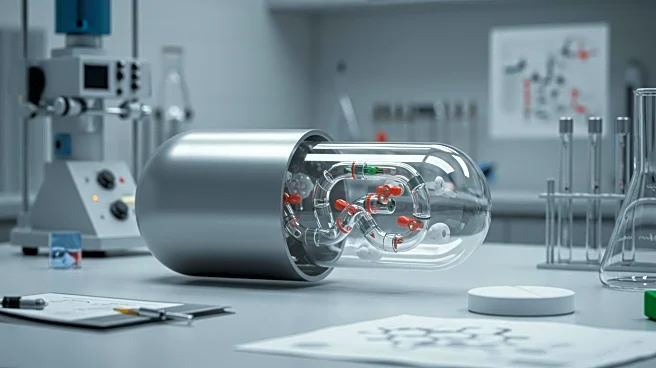What's Happening?
The FDA has reported significant contamination and pest issues at a production facility operated by Novo Nordisk, which is used by multiple pharmaceutical companies, including Regeneron and Scholar Rock. The facility, located in Indiana, has been flagged for contamination by atypical extrinsic particles, such as cat hair, and bacterial contaminations. The FDA's report, obtained by STAT News, highlights the plant's failure to determine the root cause of these contaminations or assess their impact on product batches. The facility, previously owned by Catalent, was acquired by Novo Nordisk in February last year for $16.5 billion. Novo Nordisk has responded to the FDA's observations with a comprehensive plan to address the issues. The contamination problems have already led to delays in FDA decisions for Regeneron's high-dose version of its eye drug Eylea, with verdicts now expected in the fourth quarter. Scholar Rock is also facing challenges as it awaits an FDA decision for its drug apitegromab to treat spinal muscular atrophy.
Why It's Important?
The contamination issues at the Novo Nordisk facility have significant implications for the pharmaceutical industry, particularly for companies relying on this plant for drug production. Delays in FDA approvals can impact the availability of critical medications, affecting patients who rely on these treatments. For Regeneron, the delay in approval for Eylea HD could affect its market position and revenue, as timely approval is crucial for maintaining competitive advantage. Similarly, Scholar Rock's pending FDA decision for apitegromab is critical for advancing treatment options for spinal muscular atrophy. The broader industry impact includes potential scrutiny and increased regulatory oversight of manufacturing practices, which could lead to operational changes and increased costs for pharmaceutical companies.
What's Next?
Novo Nordisk is actively addressing the FDA's observations and has committed to taking appropriate actions to resolve the contamination issues. The company has filed a comprehensive response to the FDA report and is working to implement corrective measures. The pharmaceutical industry will be closely monitoring the situation, as further delays in drug approvals could have financial and reputational consequences for the affected companies. Stakeholders, including investors and healthcare providers, will be keenly interested in the resolution of these issues and the impact on drug availability. The FDA's ongoing oversight may lead to stricter compliance requirements for manufacturing facilities, potentially influencing industry standards and practices.
Beyond the Headlines
The contamination issues at the Novo Nordisk facility raise ethical and quality control concerns within the pharmaceutical industry. Ensuring the safety and efficacy of drug products is paramount, and lapses in manufacturing standards can undermine public trust in pharmaceutical companies. The situation highlights the importance of robust quality assurance processes and the need for transparency in addressing manufacturing challenges. Long-term, this incident may prompt industry-wide evaluations of production practices and lead to innovations in contamination prevention and detection technologies.












